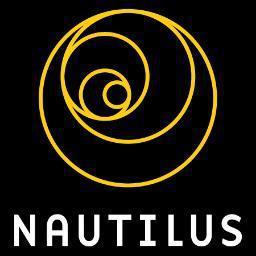 Nautilus #1: What Makes You So Special, May 2013
Nautilus #1: What Makes You So Special, May 2013
“The Candle Burned” by Mike Gelprin
Nautilus #2: Uncertainty, June 2013
“Know When to Hold ‘Em” by K. G. Jewell
Reviewed by Cyd Athens
“Nautilus is a different kind of science magazine. We deliver big-picture science by reporting on a single monthly topic from multiple perspectives. Read a new chapter in the story every Thursday.” Founded by John Steele and started with a John Templeton Foundation grant, this new science magazine launched on April 29, 2013. In addition to articles, blog posts, and interviews, each issue contains a short story based on the month’s theme. Welcome, Nautilus.
Nautilus #1: What Makes You So Special, May 2013
“The Candle Burned” by Mike Gelprin
In a future where nobody takes the time to read any more, the appreciation of literature is a lost art. Andrey Petrovich, whose lifelong passion and livelihood had been teaching literature and philosophy is at a loss. He has been relegated to poverty by his unwillingness to be retrained in virtual ethics, robotic torts legal code, or the history of cinematography. Then, Maksim, a thirty-something student eager to learn literature and philosophy comes into his life. For the next eighteen months, Petrovich gleefully teaches Maksim who is an apt and voracious learner. This exchange, which Maksim pays for with “food, clothes, merchandise, and even some electronics” rather than cash, fulfills both participants. One day, the punctual, eager Maksim does not show up for the scheduled lesson. Nor does Maksim appear for any lessons after that. When Petrovich finds out why, he is driven to a desperate act and surprised by a response that tells him exactly what makes him so special. An excellent, thematic inaugural story.
Nautilus #2: Uncertainty, June 2013
“Know When to Hold ‘Em” by K. G. Jewell
To hear Jonas, a parking lot attendant, tell it, he has a “commitment” rather than an “addiction” to MicroRisk, an app that lets him wager up to $500 on contracts for just about anything. And, he is willing to do what he can to tilt the scales in his favor. When he abandons his post at the parking lot to hedge one bet and the attendant hut is destroyed, Jonas is fired. With no job, no prospects, and rent overdue, Jonas needs more cash than MicroRisk’s contract limit will earn him. Fortuitous circumstances allow Jonas do what he thinks of as “identity borrowing.” He steals a set of bank account numbers and passwords. Convincing himself that the victim, Ms. Eglantine Zaffi, will never know about the accounts he creates in her name, he sets himself up for MacroRisk where the sky is the limit. All he needs is one good payout. What he gets is Zaffi and her muscled bodyguards showing up at his apartment. Zaffi has her own reasons for not reporting Jonas’s crime to the police. However, she refuses to lose the million dollars that Jonas has bet in her name. This story has a more contemporary and less speculative feel to it.